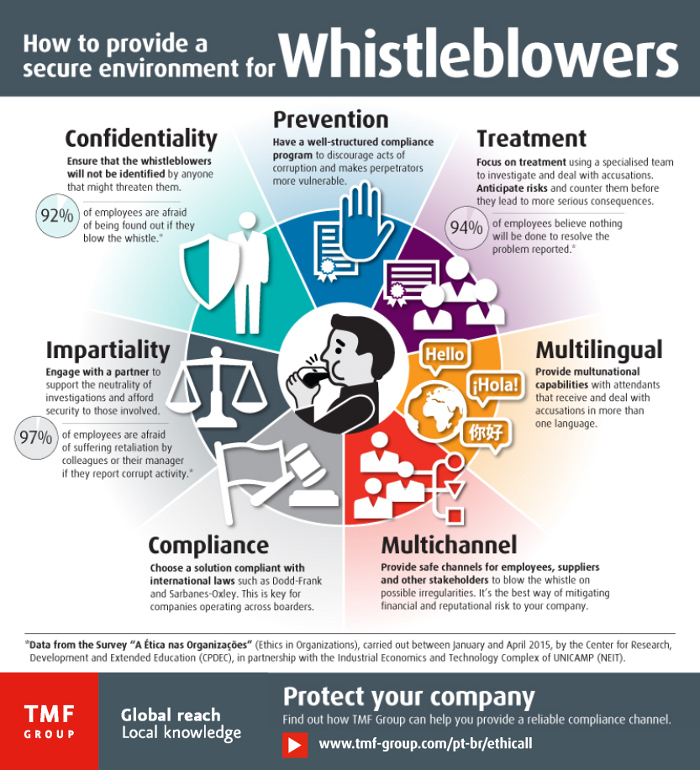By now Brazilian companies have probably heard of law No.12.846/13, popularly known as the Anti Corruption Law, which is leading to profound structural changes in companies operating in the country.
In essence, this means that your company could pay a high price if anyone involved in your business behaves illegally - even if you are unaware of what is happening.
Within this context, companies which do not adapt run the risk of fines of up to 20% of their revenues, or up to seventy million Brazilian Reais if this calculation is not possible. Other forecast punishments are:
- Forfeiture of goods, rights and valuables;
- Suspension or partial exclusion of their activities;
- Bans on receiving incentives, subsidies, grants-in-aid, donations or loans from government bodies or entities and public financial institutions or those controlled by the government, for a period of 1 to 5 years.
In addition to the financial loss, the negative impact on the corporation's image must also be factored in - sentences are published in the main Brazilian daily newspapers, contributing to loss of credibility in the eyes of the market and consumers.
That is why it is important to invest in compliance programs where the aim is to prevent, detect and properly deal with cases of non-compliance with laws and regulations, both in-house and external.
Codes of ethics and the importance of compliance
Unfortunately it is not possible to be aware of everything that is going on in your company, or to know the activities of all those frequenting your premises. That is why, to detect irregularities, it is essential to be able to count on the help of your employees, suppliers and other stakeholders.
The Code of Ethics – guidelines that instruct employees about the ideal attitudes and approaches at work according to the organisation's values – is an important instrument with the power to steer the actions of the company, and those of its stakeholders, according to its moral principles and long-term objectives in the market.
A survey carried out in 2014 by the Brazilian Institute for Business Ethics revealed that of the 1000 largest companies operating in the country, only 36% adopt and publish their Code of Ethics on their corporate websites.
This result is troubling as transparency is key to show employees, clients and stakeholders that a company is trustworthy and acting within the rule of law – and that they expect the same behaviour from all those involved with the company.
The same survey also showed that only 10% of the companies studied have a specific whistleblowing channel for stakeholders and employees to report irregularities, suspicious attitudes and other concerns.
Employees as allies
However, acts of corruption that cause harm to the public wealth and jeopardise market relations should not be the only concerns of companies. Moral and sexual harassment are a reality in the corporate environment and also need to be promptly dealt with, as they can cause employees psychological and even physical harm, demotivate teams and squander investment in training.
A nationwide survey carried out last year by the Brazilian job-seeker website Vagas, with almost 5000 people, showed that 52% of the interviewees had already experienced some kind of harassment at work.
Yet the attitude of "it won't happen to us", or ignoring a problem because of potential reputational harm, is not in the best interests of a company. There are ways of detecting and dealing with internal problems with no major consequences for the day-to-day business.
A good example of this are the whistleblower channels by telephone and/or e-mail, which afford a range of benefits for companies that adopt them, and for their employees also. Besides creating a corporate ambience of collaboration and empowering the employees, making them agents of change within the corporation, this tool helps contain risks and costs much less that the expenses that would be incurred in litigation.
Check out in the infographic below what you should consider when choosing the best whistleblower channel for your company.

The content of this article is intended to provide a general guide to the subject matter. Specialist advice should be sought about your specific circumstances.

